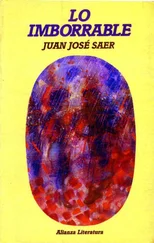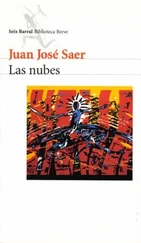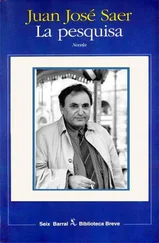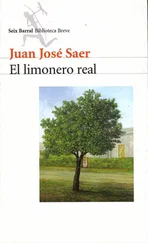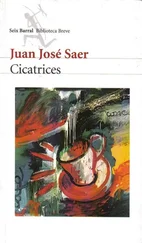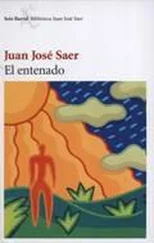Juan Saer - The Clouds
Здесь есть возможность читать онлайн «Juan Saer - The Clouds» весь текст электронной книги совершенно бесплатно (целиком полную версию без сокращений). В некоторых случаях можно слушать аудио, скачать через торрент в формате fb2 и присутствует краткое содержание. Год выпуска: 2016, Издательство: Open Letter, Жанр: Современная проза, на английском языке. Описание произведения, (предисловие) а так же отзывы посетителей доступны на портале библиотеки ЛибКат.
- Название:The Clouds
- Автор:
- Издательство:Open Letter
- Жанр:
- Год:2016
- ISBN:нет данных
- Рейтинг книги:3 / 5. Голосов: 1
-
Избранное:Добавить в избранное
- Отзывы:
-
Ваша оценка:
- 60
- 1
- 2
- 3
- 4
- 5
The Clouds: краткое содержание, описание и аннотация
Предлагаем к чтению аннотацию, описание, краткое содержание или предисловие (зависит от того, что написал сам автор книги «The Clouds»). Если вы не нашли необходимую информацию о книге — напишите в комментариях, мы постараемся отыскать её.
"What Saer presents marvelously is the experience of reality, and the characters' attempts to write their own narratives within its excess." — In modern-day Paris, Pichón Garay receives a computer disk containing a manuscript — which might be fictional, or could be a memoir — by Doctor Real, a nineteenth-century physician tasked with leading a group of five mental patients on a trip to a recently constructed asylum. Their trip, which ends in disaster and fire, is a brilliant tragicomedy thanks to the various insanities of the patients, among whom is a delusional man who greatly over-estimates his own importance and a nymphomaniac nun who tricks everyone — even the other patients — into sleeping with her.
Fascinating as a faux historical novel and written in Saer's typically gorgeous, Proustian style,
can be read as a metaphor for exile — a huge theme for Saer and a lot of Argentine writers — as well as an examination of madness.
Juan José Saer
Scars
La Grande
The Event
Hilary Vaughn Dobel
The Clouds — читать онлайн бесплатно полную книгу (весь текст) целиком
Ниже представлен текст книги, разбитый по страницам. Система сохранения места последней прочитанной страницы, позволяет с удобством читать онлайн бесплатно книгу «The Clouds», без необходимости каждый раз заново искать на чём Вы остановились. Поставьте закладку, и сможете в любой момент перейти на страницу, на которой закончили чтение.
Интервал:
Закладка:
While Señor Parra went to carry out his duties, I went to the barracks to see if my traveling companions had settled in. The soldiers, accustomed to military life, had already melted in with the rest of the troops — perhaps too lofty a name for that handful of men, poorly-armed and practically in rags — but Osuna was in a foul mood and claimed not to have slept all night from the racket and constant bustle that reigned in the block. What they called “the block” was an old brick-and-adobe building, in fairly poor repair but large enough to permit some forty men to spread out their nicked, scuffed equipment on the hard-packed floor and kip down at night. Special cases, like sick men or deserters, I would learn later, were dispatched to the hospital or the jail, which were located in a slightly larger building perhaps a hundred meters from the block. Osuna’s discontent seemed justified because the accommodations were of the worst sort, but, visiting it some time later, I saw that our guide’s rather special character might have caused him to exaggerate the reasons for his protest without realizing it. It ought to be clear to my future readers, should ever I have them, that this observation does not denigrate Osuna’s many and excellent qualities in any way, as his loyalty, matchless efficiency, intelligence, common sense, and self-denial overshadowed those others. And yet, I do not know whether due to professional bias or something else, it is impossible for me not to speculate about personality traits that motivate the opinions and actions of those I consort with beyond the reasons they themselves might offer, which are likely true enough. Osuna was thirty-five at the time and already knew the vast plain minutely, out to its farthest corners, and he had turned his irrefutable knowledge of everything related to it into a profitable but unsteady situation, perhaps familiar to the sage or the artist. Like Osuna or other desert-experts of his kind, the wise man or the artist must frequently deal with those who may benefit from their practice but are unable to properly appreciate it. Leaving aside the fact that the others did not stop to consider the sacrifices made to acquire that knowledge — and in Osuna’s case that knowledge constituted a true mastery of the unseen — it could leave him in fairly tight situations. These included dealing with superiors who might fail to give him the respect he deserved, merely taking advantage of his knowledge, or, might instead form an excessive regard for him, giving him special treatment that cut him off from the soldiers and men of similar means. Because of the many travails that gave rise to his knowledge, Osuna had acquired a particular character that made him feel darkly different from the rest, separating himself from them and concentrating, like a great ascetic, on the many details of the outer world. Over the years I dealt with him, I noticed that he was at ease only in the desert. What astonished me about him was seeing, when we made camp at some outpost and he was tempted by liquor, how the impassive façade began to crack on his sharp, dark face, how his small, slanting eyes sparkled, rapid and ever-changing, betraying the passions he hid so well during the day: vanity, arrogance even, regarding his position; jealousy that kept him from admitting to himself that there might be some other worthy guide on the plain; his efforts, otherwise so clumsy, to always be the center of attention; his air of superiority as he listened to and observed the other gauchos, soldiers, et cetera, who shared a bit of roast with the travelers in the plain’s empty night. But much more astonishing to me was to see him decisively mount his horse the next morning, fresh and ready; laconic, energetic, forbidding his face from revealing a single emotion, a single sentiment — as opposed to some hours earlier — as if it was not his will to pick up the road again, proceeding thanks to the thousand messages only he could read that reality sent to him at every step. So every time Osuna complained of something to me and I proposed to rectify the situation, he would respond that it wasn’t worth it. My hearing his complaints, it seemed, was enough.
The length of our stay in the city depended on two patients, one who hailed from Asunción in Paraguay and the other from Córdoba, joining the other two in the city, young Prudencio Parra and a nun who, as the Mother Superior informed us by letter, had fallen into madness after being violated in the convent garden. The man was in jail and the nun remained in the convent, but her constant agitation convinced the local religious authorities to appeal to Dr. Weiss to resolve the problem. In recent months, a copious exchange of letters had flown between Las Tres Acacias and the four patients’ families to arrive at an agreement about the conditions of transport, admission, treatment, fees, et cetera, and those lengthy negotiations had prompted our arrival in the city where, once the four patients had been gathered along with the guards and all that was necessary for the voyage, the caravan would depart. At first we had planned to undertake the voyage by water, but the special cargo we had to transport dissuaded the few Italian sailors whose ships provided the accommodations necessary to do so. Besides, we were reluctant about transferring the mad on the waterways because, unless we kept them locked in the hold the entire time, the wild river might prove a danger to the patients. Finally, with the families’ explicit consent, and as the result of negotiations carried out personally by Dr. Weiss, we adopted the solution of a land voyage, never thinking for an instant that, after weeks of swelling hour by hour, the river whose company we rejected would come for us, rising up of its own accord to impose its harsh rule.
For the patients’ comfort, we had rented five covered wagons of the sort travelers use to pass over the dangerous roads of that vast territory, the trade routes from Buenos Aires to Chile, on the other side of the mountains. Those carriages were pulled not by a pair of oxen like cargo wagons but rather by horses, and even boasted a door and windows, fixed up inside like little enclosures that were at once bedroom and living room, of the most cramped and rudimentary sort, of course, but with the necessary comforts to endure the interminable desert crossing, and above all to allow for (more or less) reasonable sleep at every stop on the way. Four of the wagons were intended for the patients and the fifth went to me, although I would have made do with a tent to share in the luck of the troops who would accompany us. The wagons all belonged to the same owner, a tradesman from Buenos Aires who did business in the Tucumán province, Córdoba, and Mendoza; in various Chilean cities; and with everyone in the littoral, where he had to compete with river transport; to Asunción in Paraguay, where his family had originated. The rental conditions were quite favorable because one of the patients belonged to the owner’s family. Part of the escort would leave from the city, Santa Fé, meeting us halfway down the road between Asunción and Buenos Aires, and as the road from Córdoba also passed close by, that city was the logical meeting point. We calculated that the trip to Casa de Salud would take some fifteen days, already trying not to force the march too much so as not to overtire our patients, but the various obstacles that arose and the grave circumstances that turned us from our course, that blocked our way and even forced a retreat, multiplied the duration nearly threefold.
That very afternoon I sent a message to the convent announcing my arrival for the following day. The Mother Superior, a severe-looking woman in her fifties, received me at eleven in the morning in a clean and frigid room, and from the first sentences we exchanged I realized that my profession caused her deep discomfort, but that the case of Sister Teresita, the nun Dr. Weiss was to look after, appeared even worse than before, and would doubtless bring them no few problems, as they would not otherwise deign to resort to us. In the course of the conversation, however, I learned that the order to engage Dr. Weiss’s services had come from Buenos Aires. During my interview with the Mother Superior, I was unable to stop smiling to myself, in the face of further proof that madness, simply by its presence, disrupts and even destroys the endeavors, hierarchies, and principles of the people we deem sane. The Mother wanted to extract an absurd, explicit promise of discretion on my part, and to her barely pertinent and almost offensive insistence, I said coldly that an explicit promise in that particular case would be superfluous, as discretion, since Hippocrates, had been the founding principle of our science. Without reacting to the firmness of my response, but lowering her eyes so our gazes did not meet for the length of her tale, the Mother Superior told me, with many insinuations and roundabout phrases, struggling mightily with her understandable modesty about the terrible nature of the facts she was relating, the story of Sister Teresita. The nun, who had first come to Peru from Spain, and who by the will of her order, the Handmaids of the Blessed Sacrament, had been transferred to the city, was, according to the Mother Superior, a rather naïve person and terribly devoted, given even to certain mystical excesses that had earned her several reprimands and calls to order. Despite her humble birth and lack of education beyond the essentials required for her religious training, she had a strong literary inclination that she used to express, according to the Mother Superior, her devotion to Christ and the Blessed Sacrament. One of the order’s principle tasks was to look after women of ill repute who, unfortunately, according to the Mother Superior ( and , I thought to myself, to the approval of my teacher ) abounded in America. It was a ministry the young sister had dedicated herself to with unbridled passion, just as with all she undertook, visiting them too frequently and familiarly, which gave rise to certain misunderstandings. The young sister’s intensity, which always manifested itself far too spontaneously, had fueled town gossip, as the inhabitants’ perpetual idleness, according to the Mother Superior, engendered a fatal tendency to meddle in the lives of others. But according to the Mother Superior, that was no great thing relative to the real drama that had taken place at the end of last year. A man they had hired to tend the garden, orchard, and farmyard — according to the Mother Superior, there were so many unemployed in the city that it was safer to hire them for something, for otherwise they’d turn into vagabonds and criminals — who had been working for the convent for several months, began to abuse the young sister in secret, submitting her to every type of bestial humiliation, and threatened to kill her if she dared tell anyone. Naturally, the Mother Superior omitted the details that were too painful, but it did not take much to understand, from the red spots burning on her cheeks, that the memory of those details provoked strong emotions. One day, during the siesta hour, she, the Mother Superior, had come upon them in the little chapel, sprawled at the foot of the altar, engaging in, according to her, the sacrilege of animalistic satisfaction of carnal instincts. The gardener had been arrested straightaway and remained in jail, but the consequences had been devastating for Sister Teresita, to the point that she had lost her mind. The young sister was fragile by nature, and in the months leading up to what happened, she, the Mother Superior, had observed the signs of a stronger disturbance than usual in Sister Teresita, never imagining at any point, however, that those minor agitations, that attenuated but constant instability, the sudden shift from laughter to tears, and her excessive devotion to the Crucified One, once exacerbated by the sordid drama that would touch her life, would precipitate into madness. While lulls passed in the midst of her unrest, and one might not detect the presence of madness by looking at her, the Mother Superior went on to explain that her rapid changes in behavior were so very unexpected, the altered manners and language, that at first several members of the Church had believed themselves to be facing a case of demonic possession. They debated the possibility of sending her to the Inquisition, but the city’s priest and exorcist, taking into account the fact the young sister had been the victim of such humiliations, believed there was an exact, known cause for her actions and that matters ought to be placed in the hands of justice and medicine. The ecclesiastical authorities in Buenos Aires had ruled on the case in the same way. Among those the Mother Superior cited, I recognized two who, contrary to the fairly widespread opinion of influential clergymen, were favorably inclined to Dr. Weiss’s therapeutic methods. As I saw it, choosing the case’s gnoseological interpretation at the expense of the demonological interpretation was less a question of common sense on the part of the ecclesiastical authorities than a wish for discretion. I had spoken many times with Dr. Weiss about an undeniable fact, namely that, for the past two centuries in Europe, the dungeons of most mental hospitals had been discreetly filled with wretches unfortunate enough to have been too sensational to commit to the bonfires. But the prison’s tragic role, an embarrassing one many families believed we sought to perform, protected our specialty’s emergence in the Parisian hospitals and its necessary evolution, which was the constant reflection in the Casa under the enlightened direction of my teacher. For us, the rigorous practice of medical science was the only possible form of charity.
Читать дальшеИнтервал:
Закладка:
Похожие книги на «The Clouds»
Представляем Вашему вниманию похожие книги на «The Clouds» списком для выбора. Мы отобрали схожую по названию и смыслу литературу в надежде предоставить читателям больше вариантов отыскать новые, интересные, ещё непрочитанные произведения.
Обсуждение, отзывы о книге «The Clouds» и просто собственные мнения читателей. Оставьте ваши комментарии, напишите, что Вы думаете о произведении, его смысле или главных героях. Укажите что конкретно понравилось, а что нет, и почему Вы так считаете.



